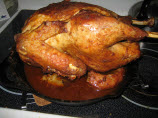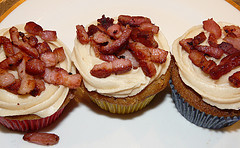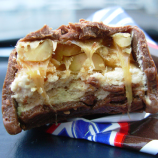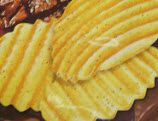If you get hungry mid-morning, you may be better off eating lunch early rather than munching on something to tide you over. A study suggests snacking between breakfast and lunch could be a sign that your eating is out of control. [More]
overeating

Don't Blame Turkey For Your Laziness Today
After everyone gorges themselves on their Thanksgiving mega-meals today, they’ll loaf around and complain about how tired they feel. Inevitably, someone will try to sound smart and chime in that the tryptophan in the turkey is to blame for the lethargy. That gives you the opportunity to sound smarter by saying “Nope, it’s actually the carbs.” [More]

Does Sleeping Less Lead To Eating More?
In an attempt to determine the link between sleep deprivation and weight gain, researchers at Columbia University have found that when people haven’t had sufficient sleep, they tend to eat around 300 calories more per day. [More]

To Your Brain, Bacon And Chocolate Are Sort Of Like Cocaine
A recent scientific study on rats shows that our brains’ wiring is what causes humans to love overeating so darn much. Rats offered a selection of rich, tasty human foods not only became obese, but their brain chemistry changed. The rats needed more food to feel content…and discomfort wouldn’t keep them away from their tasty snacks. [More]

Former FDA Head Says Food Manufacturers Use Sugar, Salt, And Fat To Short Circuit The Brain's Reward System
Do you have trouble resisting the urge to scarf down that cookie/candy bar/entree? Maybe it’s because somewhere upstream, experts spent lots of time and money manipulating the ingredients to deliver the consumer to a “bliss point,” suggests former FDA head Dr. David A. Kessler. His book “The End of Overeating” looks at how modern food has been designed to be as irresistible and satisfying as possible.


